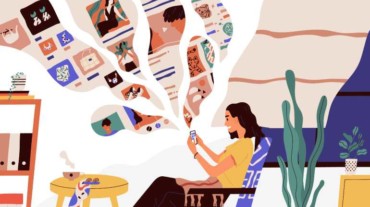
“Please help my father get an ICU bed”, “Save my mother” or “I need a plasma donor urgently” — these are some of the messages that are doing the rounds on social media currently. Users on social media platforms like Instagram and Twitter are united in the fight against the second wave of coronavirus, even as the country’s healthcare infrastructure has completely collapsed. Hospitals have run out of oxygen, ICUs are stretched thin, and there is a shortage of ventilators across the country, more so in metropolitan cities of Mumbai and Delhi.
The citizens of this country are frustrated, terrified, heartbroken and helpless. Leadership has been disappointing and personal accountability has gone for a toss. Everyone is clueless, trying to fathom what’s going on. Even if someone’s immediate family is untouched by the virus (which is rare), almost every other person has relatives and close friends who are struggling to survive.
This is not something any of us had signed up for, and yet here we are. No, we don’t need to glorify this in any way. That’s because the aam aadmi (common man) has stepped into a pair of shoes he was never meant to wear.
While this bit can’t be ignored, what’s truly heartening is how the power of social media has instilled faith in humanity. Strangers are now coming forward to help each other, becoming good samaritans in the hope to save even a single life. Putting out requests for various needs on social media could really be a shot in the dark, but it offers that little sliver of hope — which offers much-needed reassurance in times of crisis.
Here’s an important question – is social media only about the ‘good’ today? The answer is a big NO. Everything has its pros and cons, and here, the consequences can extend to your mental health.

Like most people today, I too, have been trying to amplify requests as much as I can. The thought that your call-out might help even a single soul is what keeps you going. To be honest, I wouldn’t trade it for anything else in the world. But, let’s face facts — we are in the middle of a pandemic. At this point, most of us are riddled with anxiety, so much so that it has begun to affect our daily lives. Most people today are perpetually on the edge, overwhelmed, and struggling to even sleep at night.
In this scenario, what are we to do? Should we compromise on self-care or focus on ourselves? Is that selfish? As hard as it may be, it is about striking that balance. Most of us are experiencing survivor’s guilt, where we feel that not being there for people at this point, is a mark of insensitivity. It isn’t in any way — in fact, if you can’t pay attention to your needs, you can’t help others in any way. Several studies in the past have found a strong link between heavy social media usage, and an increased risk for depression, anxiety, loneliness, self-harm, and even suicidal thoughts.
I truly believe that as people who come from a place of privilege, showing support is the least we can do. But, support doesn’t necessarily have to be through social media if it impacts your mental health. You can choose to donate to NGOs, check in with your friends and family, or provide free meals to coronavirus patients. If you still want to use social media as a tool to help people, go ahead but take breaks. Prioritize your needs in every way you can, because you are struggling too!
Also, watch:
Select Topics of your interest and let us customize your feed.
PERSONALISE NOWHaving said that, it is essential that people on social media exercise all the empathy and compassion they can. Every single person today is fighting a common battle — and yet the challenges are different. Please don’t be tone deaf — do not flood your timeline with pictures of Goa or Maldives, when people who follow you are fighting hard to get a hospital bed. You might think posting your parents’ vaccination selfie is harmless, but it could hurt someone who just lost his/her parents. The images and emotions you project might disturb others, who are clinging on to that last ray of hope to save a loved one.
What’s more, try and refrain from sharing panic-inducing images with your audience. At this point, it could really be triggering for someone, and weaken them. If you are unsure about a particular claim regarding the virus or the vaccine, please DO NOT share it at any cost. There is an epidemic of misinformation brewing on social media, and it really doesn’t help, if you become the cause of someone’s weakening mental health.
If you’re someone who is willingly helping people, always try to verify leads as much as possible. It will really help people save time, ensuring they get their requirements as soon as possible.
No, we aren’t laying down a rulebook for social media. All we mean to say is make this a respectful place, at least during these times.

The nature of social media posts during the pandemic has radically changed, even in the past year – from the initial lockdown diaries that featured dalgona coffee, cooking videos and doodles, it has now become a lot more about grief, pain and suffering.
Despite that, social media serves as an outlet for the outpouring of emotions, especially in a world that is physically distanced. You don’t need to break up with it but perhaps use it more responsibly.
Get Latest Updates on Mind, Emotional Health, Happiness Hacks, Mental Health